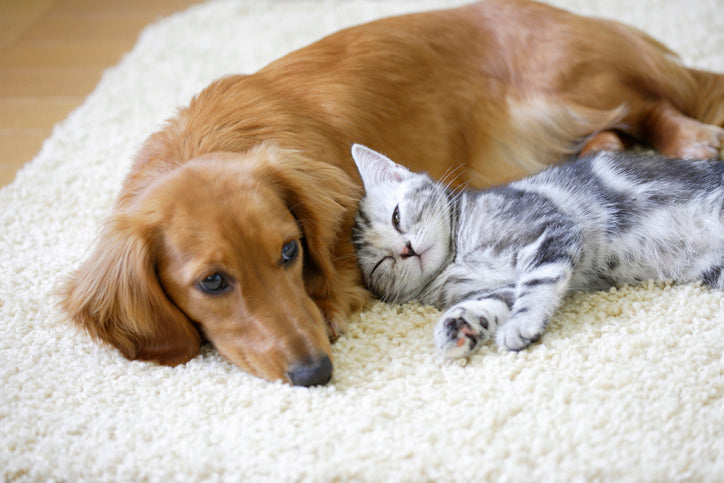Changes in Behaviour | What Does it Mean?

As pet parents, it's our responsibility to advocate for our furry family members. We know them better than anyone else, so it's our job to recognise when their daily habits and behaviour take a turn.
Understanding and recognising changes in behaviour can help decipher what your pet may be trying to communicate to you.
In this blog, we'll explore some common behavioural changes, what they could mean, and when you should consult your veterinarian.
Increased Aggression

This is a red flag if your pet, typically calm and friendly, suddenly becomes aggressive. Aggression could be a sign of pain, fear, or territorial issues. It might also indicate underlying health problems like arthritis, dental disease, or neurological conditions.
Observing when this new behaviour occurs, and any potential triggers will help you and a professional understand what's happening and why, as well as how to help.
Excessive Barking or Meowing

Excessive vocalisation is often a sign that something is wrong with dogs and cats. This could stem from anxiety, loneliness, or boredom. In older pets, this behaviour may be linked to cognitive decline. Pay attention to when this behaviour happens—during certain times of the day or in response to specific situations—and consult your vet if it becomes persistent.
Sudden Lethargy

A drop in energy levels or a reluctance to engage in physical activity could signal that your pet is unwell. Lethargy is often associated with conditions like infections, heart disease, or metabolic issues. If your typically energetic pet seems uninterested in walks or playtime, it's worth scheduling a veterinary visit.
Changes in Appetite

A sudden increase or decrease in appetite can indicate health issues. Overeating might indicate conditions such as diabetes or hyperthyroidism, while a loss of appetite could be linked to digestive problems or emotional stress. If your pet's eating habits shift, tracking any other symptoms and visiting the vet for a check-up is essential.
Destructive Behaviour

Has your dog started chewing on furniture, or has your cat been scratching at doors and windows? This may not be just a naughty phase but could signal anxiety, stress, or boredom. Pets with separation anxiety, in particular, may act out when left alone. Providing mental stimulation through toys or addressing their emotional needs can help curb this behaviour.
Excessive Grooming or Hair Loss

While grooming is regular, excessive licking or scratching can indicate allergies, skin infections, or flea infestations. Stress is another potential cause, especially in cats, where over-grooming can serve as a coping mechanism. If your pet is losing hair or showing signs of discomfort, seek advice from a veterinarian.
Changes in Sleep Patterns

Is your pet sleeping more than usual or having difficulty settling down? Sleep disruptions can be a symptom of an underlying health issue, such as joint pain or anxiety. Pets experiencing cognitive decline might also wander or seem restless at night. Keep track of how their sleep patterns are evolving so you have a record if you decide to seek professional help.
When to Seek Professional Help
While some behavioral changes may be temporary or minor, it's important to remember that persistent or severe changes should not be ignored. If your pet shows signs of distress, discomfort, or illness, it's crucial to seek professional help.
Early intervention can address any underlying health issues and ensure your pet stays happy and healthy, showing your proactive and caring approach to pet ownership.
How Pet Food Can Help
Sometimes, a change in diet can support better behaviour. Nutritional imbalances can affect energy levels, allergic reactions, mood, and overall well-being. If you suspect your pet's food may be contributing to their behavioural changes, switching to a high-quality, balanced diet, like the options offered by Pet Food Australia, could make a difference.
Remember, changes in your pet's behaviour can be their way of communicating that something isn't right. Whether it's a sign of physical discomfort, emotional distress, or environmental stress, your attention and quick response can make a significant difference.
Proper care, attention, and possibly a diet adjustment can help your pet return to its happy and healthy self. By staying proactive and understanding the meaning behind behavioural changes, you can continue to give your pet the best possible care.
P.S. If you’re interested in learning more about how your pet’s diet influences their behaviour, check out our previous blog here.













